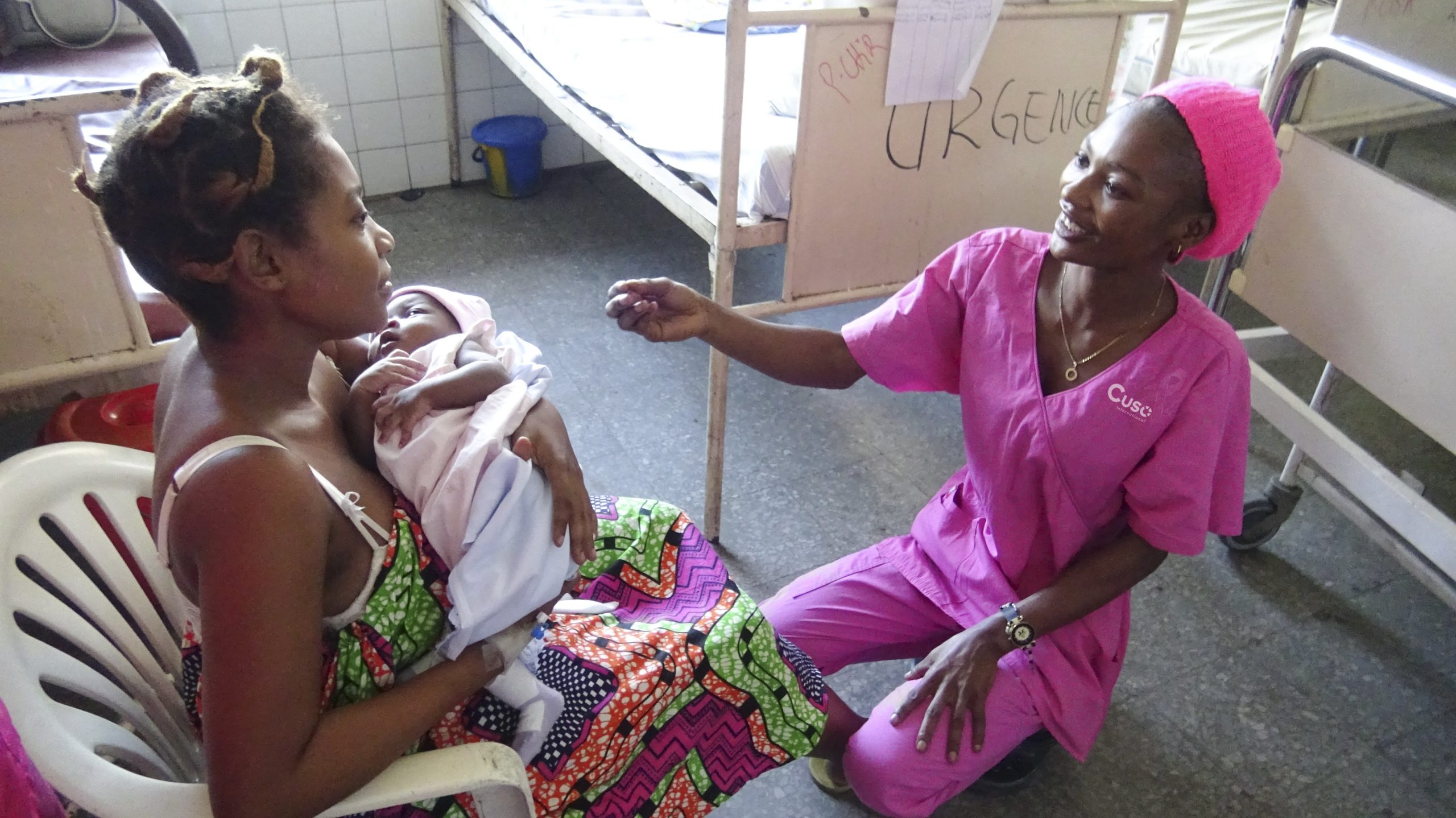Training the next generation of midwives
Story


Cuso’s Midwives Saves Lives program is having a positive impact in four African countries where it is building a bridge between the community and the local health system.
This article originally appeared in the Globe and Mail on Nov. 15, 2019.
The numbers are staggering: each year an estimated 289,000 women worldwide die during pregnancy and childbirth, and 2.6 million suffer stillbirths. With 50 per cent of the maternal mortality rate reported from just six countries, Canadian international development organization Cuso International is focusing its Midwives Save Lives (MSL) initiative in four of these countries: Benin, Democratic Republic of the Congo (DRC), Ethiopia and Tanzania.
The four-year initiative to reduce maternal and newborn mortality by improving the supply of and demand for health services and strengthening the work of midwives’ associations is led by Cuso in partnership with the Canadian Association of Midwives (CAM) and local midwifery associations.
The scale of the challenges facing women in these countries is enormous. More than 80 per cent of women in the DRC don’t have access to health professionals, and if care is available it’s often avoided because of the fear of disrespect and abuse encountered in facility-based maternity care, which can be a more powerful deterrent than cost or distance.
MSL is building capacity in these countries by upgrading the skills of in-service midwives and giving health-care workers the tools to not only save lives themselves, but also train the next generation of midwives.
In DRC, this training was co-developed by CAM, the Société Congolaise de la Pratique Sage-Femme and the Ministry of Health with the support of Cuso. In keeping with Cuso’s own priorities to advance gender equity and empower women and girls, the training emphasizes the role that midwives can play in advancing seven fundamental rights of women: A woman must not be subjected to abuse or mistreatment; She must be able to give informed consent; She has a right to privacy; She has a right to dignity; She has a right to equitable care; She has a right to the highest available level of care; and She has a right to give birth without coercion or other violations of her bodily autonomy.
“We really worked hard to build a bridge between the community and health system by encouraging greater collaboration between the midwives and the community health workers,” says Astrid Bucio, Cuso’s health and technical advisor for international programs.
The results so far are rewarding. Cuso has recorded more than 350 months of Canadian volunteering in the four target countries, the initiative has touched more than three million lives and more than 1,000 midwives have been trained.
Hélène Bombula Liema became a midwife after a medical mystery had a devastating impact on her family. “My mother’s younger sister died in childbirth. She was having convulsions, and we sent her to the hospital because we didn’t know what to do. I was in my second year of high school, and I decided to become a midwife, so one day I would understand what happened. Back then, people thought witchcraft had killed her, but years later, I learned that she had died from eclampsia. We motivate each other, and when we see that we’ve saved a woman’s or a baby’s life, that’s very strong motivation.”
One mother who noticed a difference is Bénédicte Lekulangay. Speaking in a maternity ward at a hospital in Kinshasa, DRC, she says when she gave birth at the hospital for the first time two years ago, she wasn’t treated with respect.
“This time, there have been big changes,” says the mother of two. “They take care of us and tell us to eat when we’re hungry. We really admire the efforts they’re making.”
Dr. Mamisa Kachelewa, who works at the Clinique Mère-Enfant de Bahumbu in DRC, says this rights-based approach has had a direct effect on patient care.
“We are really feeling the impact of this training,” she says. “The midwives are much more patient when they’re caring for the mothers.”
For Laurie Buske, Cuso’s director of resource development, visiting the program has been a life-changing experience.
“Seeing the impact and the change that is happening due to Cuso’s efforts and training – not just a one-mom model, but throughout the community – is really rewarding,” she says.
See the original article here.